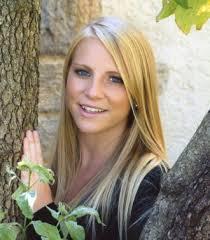In 2010, college sophomore Elizabeth Minter was diagnosed with gliomatosis cerebri. Before it took her life, Elizabeth and her family worked with neurosurgeon and researcher Dr. Jeffrey Greenfield to launch Elizabeth's Hope. In June 2011, Elizabeth shared her story in her own words.

“In the summer of 2010, I was a typical 19-year-old. I was between my freshman and sophomore years at Denison University and I spent the summer babysitting. I was always exhausted, which I attributed to the challenge of caring for small kids. That fall I returned to school, where my major dilemma was whether to major in communications or biology. I wanted to be a nurse, but enjoyed my communications courses more than biology. I was also contemplating a Junior Abroad program in Australia or Italy.
“As the semester progressed I became more fatigued. I opted to go to bed Friday and Saturday nights instead of socializing with my friends and sorority sisters. When I returned to school after Thanksgiving break, I started vomiting when waking in the morning. I went to the infirmary at school; they gave me some antinausea medication, but that didn’t really work. Somehow I made it through exams!
“I returned home for the Christmas holiday on December 20, and my parents could see that something was wrong. They scheduled a complete physical for December 27. My blood work was all fine, so a CAT scan was performed on my brain December 30. I was feeling better that afternoon, knowing that the doctors were determined to find out what was wrong.
“I was getting a manicure when my doctor called and said that the CAT scan was not normal and that we should go to NY-Presbyterian Hospital’s emergency room for an MRI. Late that night, a doctor came into my hospital room to tell me and my parents that I have a rare, inoperable brain cancer. My first reaction was shock and disbelief. I remember asking the doctor, 'Am I going to die?' He told me, 'I am very concerned.'

“The next several weeks are a blur; I had a brain biopsy and numerous other tests and procedures, including the removal of my wisdom teeth. But the outpouring of love and support from family, friends, and strangers has helped me and my family with this challenging diagnosis and uncertainty. Hope and positivity are what sustain me.
“I know my diagnosis is serious. One of my best friends has juvenile diabetes — a serious chronic disease that can kill you. Thanks to insulin and other medical advances he is living a very happy, productive life. I’m hoping the same will be true for me.
“At the moment, I am being treated with Temador, a drug that was approved only a few years ago for brain cancer. I am hoping that medical research will continue and that there will be more treatment options — and even a cure! I am hopeful that I will survive. I am young and resilient, and the cancer is slow growing. In addition, I have and am receiving the best medical treatment in the world.
“Cancer is hard. It has definitely taken its toll on me physically, although I am grateful I still have my blond hair. Despite the physical challenges, I have benefitted from many new life lessons, most importantly take nothing for granted. Your life can change in an instant.
“Unfortunately, my illness is preventing me from returning to Denison or working. I have established Elizabeth’s Hope as a means of advancing the medical community’s knowledge of brain cancer. The fund gives me a purpose, focus and hope.”
Elizabeth succumbed to her disease in May 2012.
Read more about her story at ElizabethsHope.com

